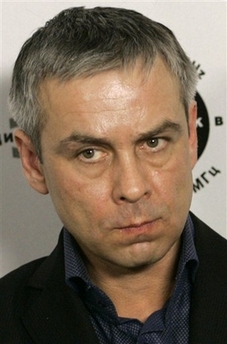Asia-Pacific
Radiation linked to contact of ex-spy
(AP)
Updated: 2006-12-11 20:56
 |
Large Medium Small |
HAMBURG, Germany - German investigators have confirmed that a car used by a contact of fatally poisoned ex-spy Alexander Litvinenko before the two men met was contaminated with the rare radioactive substance polonium-210, police said Monday.
Still unknown is whether Russian businessman Dmitry Kovtun was involved in the poisoning, or a victim of it. He is reportedly being treated in Moscow for radiation poisoning.
Investigators said Kovtun flew to Hamburg from Moscow with Aeroflot on Oct. 28 and departed for London on Nov. 1. That is the day when Kovtun and at least one other Russian met with Litvinenko at London's Millennium Hotel - and when Litvinenko is believed to have fallen ill.
Litvinenko - an ex-Russian agent who was a fierce Kremlin critic - died Nov. 23 of poisoning from polonium-210 after blaming Russian President Vladimir Putin, also a former intelligence officer, for the poisoning.
The Kremlin has vehemently denied involvement.
German authorities said Sunday they found traces of polonium-210 at a Hamburg apartment where Kovtun is believed to have spent the night before he left for London to meet Litvinenko. The substance was found on a couch where Kovtun is believed to have slept.
Tests on radioactive traces found in the passenger seat of the BMW car that picked up Kovtun from the Hamburg airport showed that "it is definitely polonium," police spokesman Andreas Schoepflin said Monday.
Radioactive traces also have been found on a document Kovtun brought to Hamburg immigration authorities; and at the home of Kovtun's ex-mother-in-law outside Hamburg - again from before the Nov. 1 meeting.
German prosecutors did not say whether they suspect Kovtun might have been involved in Litvinenko's death. But they said they were investigating him on suspicion he may have improperly handled radioactive material.
"We still believe that both variants are possible: that he may be a victim, but also that he may have been involved, at least in procuring the polonium," prosecutor Martin Koehnke said Sunday.
On Monday, a British police official arrived in Hamburg and was to be briefed on the German investigation, Hamburg police said.
Kirchner, the radiation agency official, said it was possible Kovtun could already have been poisoned and that he left behind traces through body fluids such as sweat.
Whatever his role, at this point, "we have to assume that Mr. Kovtun already had this polonium-210 contamination on him when he came to Hamburg Oct. 28 on a flight from Moscow," police investigator Thomas Menzel said on ARD television.
On Saturday, the German plane aboard which Kovtun flew from Hamburg to London tested negative for polonium-210. Investigators raised the possibility that that may be because the plane had been cleaned thoroughly.
Litvinenko met at the Millennium Hotel in London's Mayfair neighborhood with Kovtun and former Soviet agent Andrei Lugovoi. Another man, security firm head Vyacheslav Sokolenko, has said he was at the hotel but did not participate in the meeting.
Lugovoi has denied that the men were involved in the ex-spy's death.
Lugovoi, Kovtun and Sokolenko all graduated from an elite military academy in Moscow. Their fathers were Soviet officers who served together at the Defense Ministry, and they went to the same military academy. Kovtun has said he graduated in 1986, a year ahead of Lugovoi.
Speaking on Ekho Moskvy radio Nov. 24, Kovtun said he served in Czechoslovakia and Germany, remained in Germany after the Soviet collapse in 1991 and lived there for 12 years. He said he was married until recently to a German citizen and still had residency status in Germany.
He said his business dealings are now in Russia - as a consultant for Western companies looking to do business there.
| 分享按鈕 |


